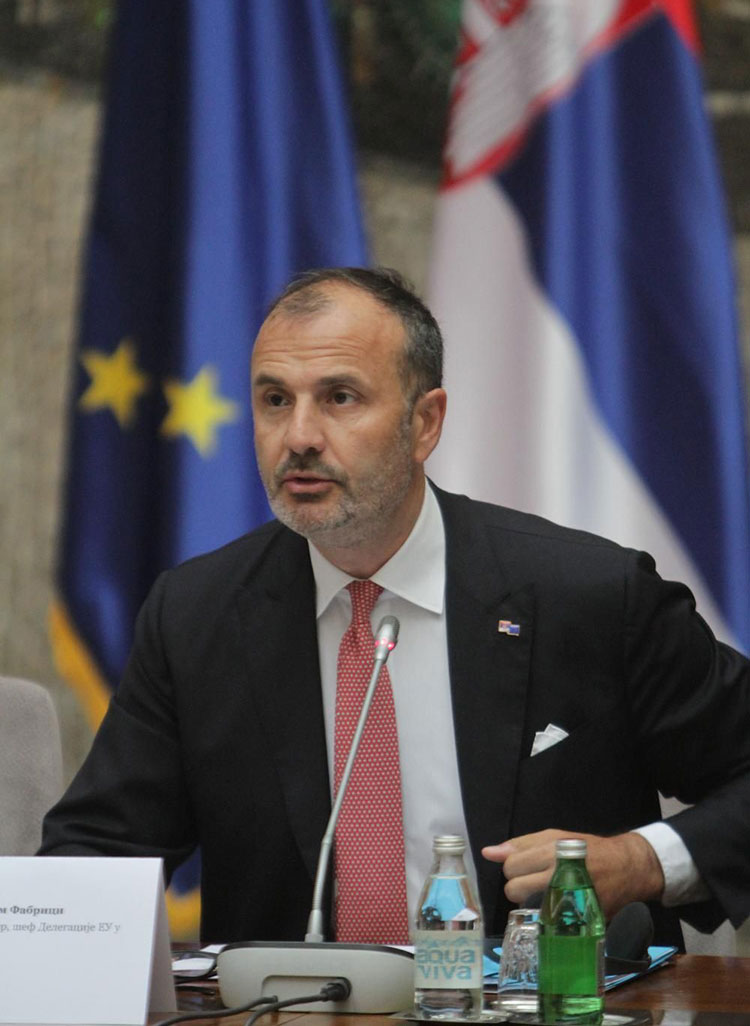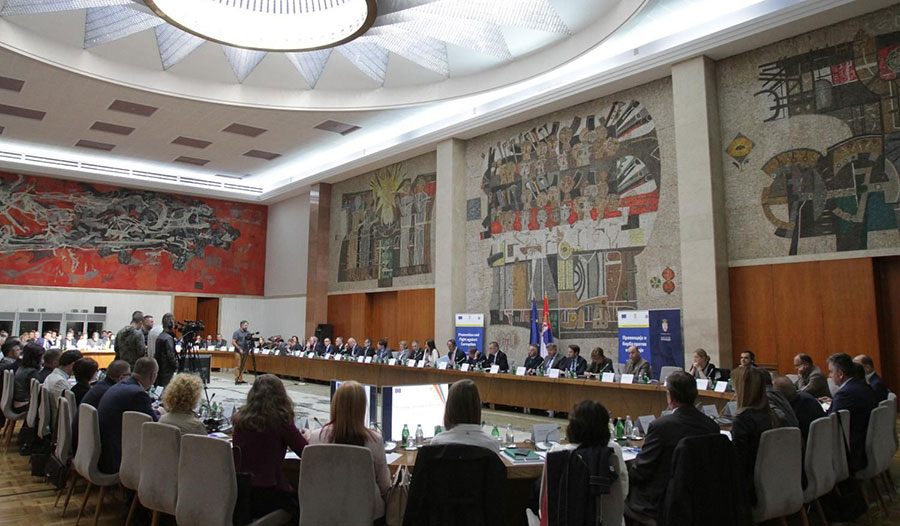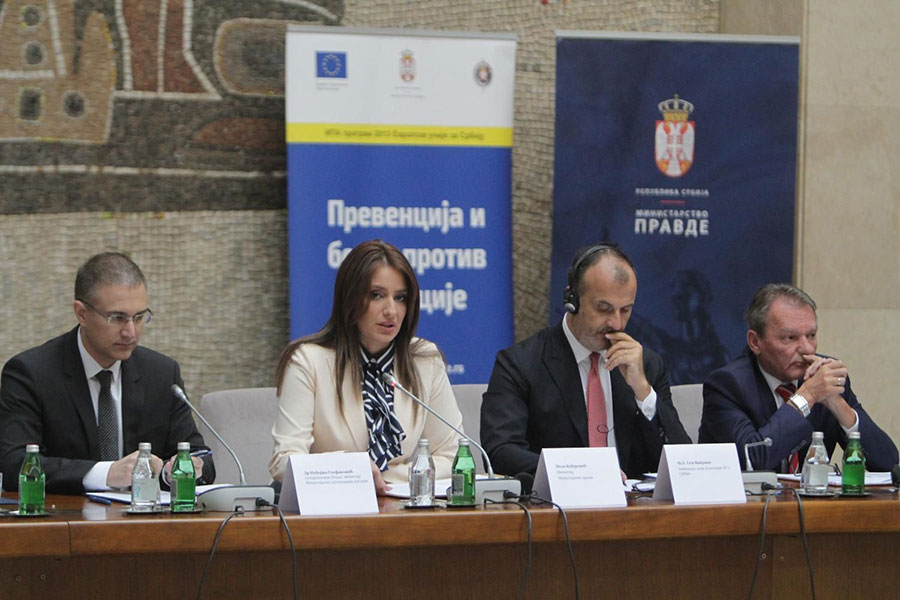The Head of the EU Delegation to Serbia Sem Fabrizi said that numerous international reports showed a considerable number of shortcomings when it comes to Serbian judicial authorities’ tackling of corruption, because it does not suffice to adopt laws, action plans and strategies, they have to be enforced and lead to a good track record, he said.
Opening a conference dedicated to fight against corruption, Fabrizi said what’s needed is to see evidence of criminal assets confiscation, especially in high-level corruption cases. We will witness tangible results in this area in the next six months, he said.

Fonet
“We want the number of judgements to increase, but we also want to know the relevance of the cases closed so far,” he said.
Fabrizi said the enforcement process of the Law on organisation and jurisdiction of government authorities in suppression of organised crime, terrorism and corruption was moving in the right direction, adding that it is too soon to fully determine its effects.
Corruption, as he put it, is a challenging field in terms of investigation due to the complex process of gathering evidence. “There is no victim, no bullet, no ballistic investigation,” and it is in no one’s personal interest to shed light on it, he said. What is therefore needed is to keep track of the cash flows, particularly when it comes to newfound wealth, he noted.
The Minister of Justice Nela Kuburovic said that as of 1 March – the day the Law entered into force – 275 persons have been indicted on corruption charges. Of 142 persons whose cases have been closed, 65 were sentenced to prison.
Bribe and abuse of office are two of the most common offences, she said, adding that this is only the beginning as neither prosecutors nor the police “have yet had a chance to show what they’re made of.”
Kuburovic said she was not happy either about the results achieved in criminal assets confiscation or “the number of rulings and the size of confiscated assets.”

Fonet
The Minister of Interior Nebojsa Stefanovic commended prosecutors, the police and judges tasked with corruption cases, adding that “they prove Serbia is leading a strong fight against corruption.”
I believe we can be satisfied with the results achieved in the area of combating money laundering, – when it comes to both natural and legal persons – knowing that no country in the region and a limited number of developed countries can boast such results, Stefanovic said.




